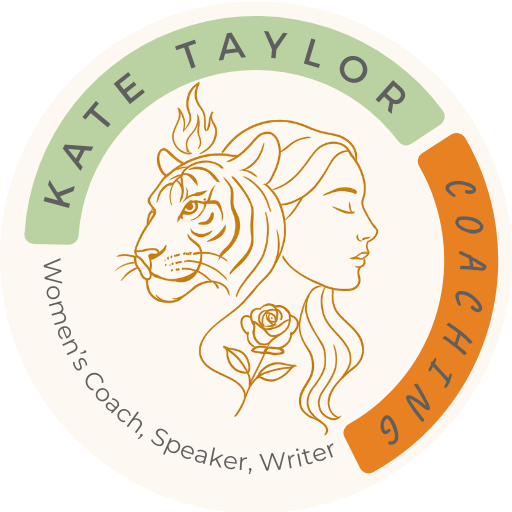Feeling stuck in life is something we all experience at some point. It might be in a job you don’t enjoy, a relationship that isn’t working, or even just a general sense that things aren’t right. But why does it happen? And more importantly, how can we break free?
Knowing yourself is key to moving forward. Many of us don’t take the time to reflect on what truly matters to us, and we end up following paths set by others. Maybe you took a job because it seemed like the “right” thing to do, or you’ve stayed quiet in a relationship because you’re afraid of making waves. If you don’t know what you value, it’s easy to feel stuck.
When I’ve coached women through these feelings, I’ve noticed two big themes: not knowing themselves well enough to see what they want next, and not feeling confident enough to make a change. These two issues are deeply linked, but they’re also things you can work on—one small step at a time.

Discovering Your Values
Think of your values like a tree. The roots are the values that run deep; they’re the things that make you feel alive and fulfilled. Maybe it’s creativity, kindness, or family. These values don’t change much and are integral to who you are. Then there’s the trunk, which holds everything together. These values are strong but slightly more flexible. And finally, there are the branches and leaves. These represent newer or more short-term values, like something you’ve picked up during a particular phase of life. Even if they’re temporary, they’re still valid and important in the moment.
When you’re not sure what your values are, ask yourself: “What lights me up? When do I feel most alive?” These are clues to what’s truly important to you. It’s also helpful to notice the difference between values and external achievements. For example, “success” might seem like a value, but it’s often linked to external measures, like a promotion or salary. The deeper value behind success might be freedom, security, or growth.
A personal example: when I moved to new cities, I initially felt lost. I didn’t know anyone, and I had to figure out who I was without the labels and expectations of others. But it was freeing too. I realised my root values included independence and authenticity. Recognising those values helped me make decisions that felt right for me, not just what others expected.
If you’re struggling to uncover your values, my course, Unstuck – Find Your Direction and Purpose in Life, can guide you through the process. It’s about finding what matters to you so you can align your choices with the person you want to be.
Living Authentically
Once you know your values, the next step is to practise living in alignment with them. This doesn’t mean you have to overhaul your life overnight. Being authentic is a daily practice, and it evolves as you do. Who you are today might look different from who you were five years ago, and that’s okay.
One way to practise authenticity is to ask yourself simple questions each day: “Am I acting from my values today?” or “Will my future self be proud of this choice?” Using your future self as motivation can be incredibly powerful. Imagine looking back and feeling grateful for the small actions you took now to create a life you’re proud of.
Think of authenticity like tending a garden. Your core values are the soil—they provide stability and nourishment. But what you plant and how you care for it will change with the seasons. Some things will grow and flourish; others might wither and need replacing. The key is to keep tending to it.
I often remind my clients that authenticity isn’t about being perfect. It’s about being honest with yourself and showing up as the best version of you, even when it’s messy. When I started talking openly about my struggles with anxiety, I worried it might make me seem weak. But what I found was that it actually deepened my connections with others. They could see my honesty, and it encouraged them to open up too. That’s the beauty of authenticity—it invites connection and growth.
Embracing All Parts of Yourself
Feeling stuck often comes from being too hard on yourself. Many women I work with are overly critical, focusing on their flaws while completely ignoring their strengths. They’re not in denial about their “bad” sides; they’re stuck overthinking them.
To move forward, it’s important to embrace both the good and the bad. Standing in your power means knowing who you are, accepting your imperfections, and not letting anyone shake your belief that you are enough. This takes time, but it’s built from small, consistent actions.
Here’s an analogy: imagine you’re carrying a backpack. The rocks inside represent the self-critical thoughts you’re holding onto. Some of those rocks are valid—things you want to work on—but many of them are unnecessary. They’re things you’ve picked up because of societal expectations or someone else’s opinion. Take a moment to unpack your bag. What are you carrying that isn’t serving you? Let it go.
To balance this, start focusing on your good points. One exercise I love is writing down three things you did well each day. It could be as small as making a kind comment to someone or completing a task you’d been putting off. Over time, this shifts your focus and helps you see your strengths more clearly.
When I began sharing my journey with endometriosis and how it affected my relationships, I had to learn to communicate my needs clearly. It wasn’t easy, but it brought my partner and me closer because it allowed us to be more honest with each other. Embracing my vulnerability didn’t make me weaker; it made me stronger.
These small steps—knowing your values, practising authenticity, and embracing all parts of yourself—are the building blocks of breaking free. When you feel stuck, it’s often because you’ve lost sight of these things. By reconnecting with them, you can start to see new possibilities and take action that feels right for you.
